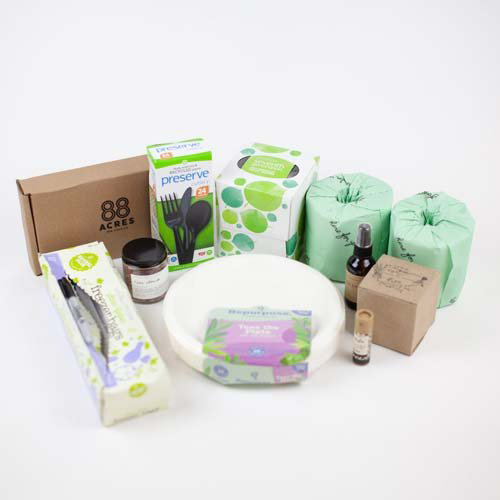Here is an important yet often overlooked funeral planning tip:
Bring a friend with you to the funeral home. (And cemetery/crematorium/flower shop/venue, etc.)
Having a friend to help plan a funeral is a brilliant decision. Not only for moral support but to help you make (or avoid) some impactful, weighty, and often expensive decisions.
After all, when you are burying a loved one you don’t want to make an emotional choice that you later regret. A good friend at your side can make all the difference between agonizing stress and the freedom to mourn, honor, and remember a loved one.
Supporting Your Friend with the Funeral Arrangements
There is so much that goes into planning a funeral. When someone is in a heightened emotional state because of grief, it is hard to make sound decisions. They tend to forget details and may have cloudy judgment.
This is where you, the friend, come into play.
You will be there to offer emotional support, take notes, and even ask questions. Your friend will thank you for your love and concern.
As a funeral director, I always welcome the supportive friend into the arrangement room. Your help and support is much needed, and will be appreciated!
Planning a Funeral
Planning a funeral is hard. There is never a “good” time to take care of this daunting task.
It’s not just the funeral home to deal with; there is the church, cemetery, and perhaps a luncheon. Officiants, musicians, pallbearers, funeral programs. Choosing a headstone or a cremation urn.
What about notifying friends and family that live at a distance? All these things need to be coordinated.
The funeral director will take care of much of it, but the “personal” side will be up to the family – and this is where you, Friend, can take over.
Important: Your grieving friend must let the funeral director know that you can call on his/her behalf. Otherwise, the funeral director and staff will not share any information with you if you call.
Read more: Funeral Planning Guide
Practical Ways You Can Help with the Funeral
Begin, of course, by asking your friend if you can come along and help. If he or she already asked you, great. You want to help, but you also don’t want to impose during a difficult time.
Next, read through our funeral planning guide and other resources to get a good idea of what will be involved in the arrangements. Talk to your friend ahead of time about what they want, and get a general idea of the budget.
Once you have the basics covered, here are some specific ways to help your friend as they make arrangements.
1. Get a Notebook and Write Stuff Down
Keep detailed notes. The funeral director will have written down every single thing that has transpired at the arrangement table.
As long as the legal next of kin has let the funeral director know that they can share information with you, the funeral director will be happy to do so.
2. Go to the Funeral Home with Your Friend
You do the driving. Let your grieving friend relax as much as possible. You don’t want someone who is distracted behind the wheel.
On the way, you may want to discuss what they should expect at the funeral home.
3. Text/Call on Behalf of Your Friend
Take over notifying people about the service. Out-of-town people will need to make plans, so the quicker they know, the better for them.
This is a huge burden to take from your friend, and one they will appreciate.
4. Delegate and Ask Others to Help
Don’t be afraid to ask for help. Everyone knows that funerals (and all they entail) are a lot of work. So ask other friends or family members to help out.
Picking up people from the airport, arranging meals, and helping write an obituary are a few tasks to be delegated. Between all the family members and friends these things will be well-covered.
Most people who are close to the bereaved are eager and willing to help. They just need to be asked!
5. Pick Up or Drop Off Their Children From School, Activities, or a Friend’s House
It’s good to keep the kids occupied through this time. Picking up and dropping off their kids will take a weight off of their shoulders.
You can even plan an outing with them. And of course, the zoo is always a nice outing, the park, or even a trip to McDonald’s is fun!
Read more: Grief in Children, and How to Help
6. Cook a Meal or Two
The family would appreciate a home-cooked meal at this time.
Cook at your house and take it over. Make a casserole that will last a couple of meals. A meal of roast beef, mashed potatoes and gravy, and corn on the cob. Or how about a big pan of lasagna?
Any of these meals would be a hit. Here are more recipes and ideas.
7. Help Around the House
Don’t wait to be asked; just pitch in. Grab a vacuum or a broom, stack the dishes in the dishwasher, scrub the bathroom; there are always household chores to be done.
Delegate chores to the kids – even younger ones can help out. For example, have them gather all of the dirty laundry for you.
Read more: 10 Specific, Practical Ways to Help a Grieving Friend
8. Make Sure the Family has the Necessities

During the funeral planning stage, it’s easy to run out of important things like:
- Toilet tissue
- Feminine products
- Paper towels
- Dish soap/Dishwasher detergent
- Hand soap
- Laundry detergent
- Bottled water
- Disposable plates and cutlery
- Trash bags
You can also send them a practical care package from Here for You, where they curate sympathy gift boxes with these exact sorts of items.
9. Help Pay for “Stuff”
I am talking about making sure the kids have lunch money, ordering take-out, or keeping their coffee and tea selection supplied. You can pick up a few incidentals for the house without expecting repayment.
Death is expensive. Suppose you want to help with the more significant expenses. In that case, you can offer to pay the honorarium to the clergy, the musicians or even offer to help pay the funeral costs. Use your discretion.
10. Continue to Support Your Friend After the Funeral
A few days after the funeral is over can be a tough time. Friends and family have gone home and back to their everyday lives. Support is still there, but dwindles as the days and weeks go by.
But the grieving is just setting in for your friend. He/she must have support now. So continue with helping out with the little things.
Stop by for no reason, just to visit and spend some quality time together. This is always a nice time to drop off flowers, a box of chocolates, or a little friendship gift.
Put the date of death in your calendar, and remember to send a supportive text or make a phone call on that date each year. For the first year, remember to show support and care throughout the first six months.
Related: Tips to Bring Comfort on a Death Anniversary
Thoughtful Ways You Can Show Support to a Grieving Friend or Family Member
Sometimes it can be tricky to know what to say or do when a friend loses someone they love.
- Spend uninterrupted time with your friend.
- Listen when your friend talks.
- Show physical support: a hug, holding hands, or an arm around your friend’s shoulders. Please don’t make yourself or them feel uncomfortable.
- Be there to hang out with or as a shoulder to cry on.
Supporting your friend emotionally may be the best thing you can do for them right now. If you can’t think of words to say, offer eye contact, a squeeze of the hand, or a reassuring hug. Take cues from your friend.
- Offer sincere encouragement.
- Give reassurance and compassion.
- Validate your friend’s feelings and emotions.
- Let your friend know that you love them.
- Listen without being judgemental. Sometimes your grieving friend may feel guilt, relief, or plain numbness. These are all normal reactions and should be respected.
Read more: How to Help a Grieving Friend
Tips for Asking to Help
Having a friend at their side always makes hard things a little bit easier. Having someone to share this hard time with can make a big difference.
But sometimes, it is hard for someone who is grieving to ask for help. There are ways for you to offer support.
- “I’d like to support you through all of this.”
- “Give me a list of errands; I will do them for you.”
- Convey to your friend that you want to be a part of their grieving process.
- Encourage your friend to open up about their feelings.
- Offer to be helpful in concrete ways rather than as a general statement. For example, “I’m happy to come over and make dinner one night.” vs. “Let me know if there’s anything I can do.”
It’s important not to be pushy. However, there might be a time when the only thing to do is to accept their “no thank you.” Continue to let them know that you will support them and be there when they need you.
Support your grieving friend. Grief is difficult at any time. Everyone will grieve differently and need different support. Remember that you can’t take away the pain, but you can let them know they are not alone.
Pin It

Karen Roldan has been in the funeral industry since 2006, and a licensed funeral director and embalmer since 2008. She is currently licensed in the states of Indiana and Pennsylvania.
She attended Worsham College of Mortuary Science in Wheeling, IL, and graduated with an associate degree in Mortuary Science.
Karen enjoys wring about the funeral industry because her passion is helping families in their deepest time of need. She feels being a funeral director is a calling and she is proud to fulfill this role.
Karen is a wife and the mother of four sons. She, her husband and their youngest son call Pennsylvania home.
